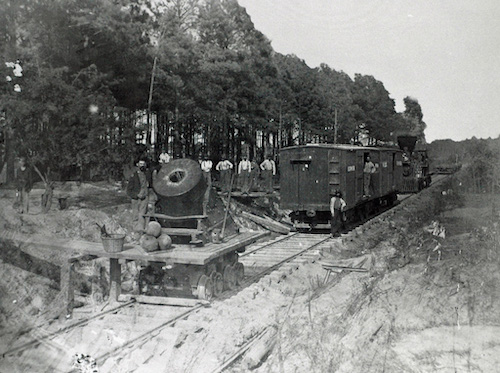Pardons were to right injustices not to escape justice
 In the 1930s, Lead Belly and the Golden Gate Quartet recorded “The Midnight Special”
In the 1930s, Lead Belly and the Golden Gate Quartet recorded “The Midnight Special”
The Power of the Presidential Pardon: A Legacy of Justice and Controversy
The Founding Fathers granted the President the power to issue pardons, likely envisioning it as a means to correct unjust verdicts and sentences. Historically, those most in need of this mercy were often hardworking individuals without the wealth or influence to challenge the system. The folk song Midnight Special, which emerged from Southern prisons in the early 1900s, encapsulated this hope: "Piece of paper in her hand. She come to see the gov’nor. She wants to free her man, lord."
A Personal Perspective on Pardons
In 1974, while working as a union construction laborer in Oakland, California, I stopped at a bar with my boss to wait out rush hour traffic. There, we heard the news: President Gerald Ford had pardoned Richard Nixon. As a Democrat, my initial reaction was outrage—it didn’t seem fair. But as time passed, I recognized that our deeply divided nation needed healing more than a trial.
Controversial Pardons: From Mark Rich to Modern Times
In 2001, President Bill Clinton pardoned Mark Rich, a fugitive financier indicted in 1983 on 35 federal charges, including tax evasion, wire fraud, and making oil deals with Iran during the hostage crisis. Rich never returned to the U.S., yet his wife contributed significant sums to Democratic causes, raising ethical concerns about the pardon’s legitimacy.
Fast forward to 2024: President Joe Biden issued the broadest-ever pardon to his son. In 2025, he extended similar pardons to family members under investigation for foreign business dealings. Additionally, he granted over 8,000 pardons, including 6,500 for marijuana possession. Most controversially, he pardoned individuals who had supported efforts to hinder Donald Trump in various legal and political battles.
On the other side, in 2025, President Donald Trump issued pardons to all January 6 defendants, further fueling partisan tensions.
Examining the History of Presidential Pardons
I expected data to show a steady increase in the number of pardons since President Washington. However, the numbers have generally clustered around 100 per year, with some significant spikes:
Notably, President Washington pardoned two individuals convicted of treason for their roles in the Whiskey Rebellion. As Lincoln and Johnson extended amnesty and pardons to former Confederates, viewing reconciliation as essential.
The challenge to the country is when a pardon is granted without the individual accepting responsibility for their actions and their absence of contrition.
Pardons as a Path to National Healing—or Further Division?
Historically, major pardons have aimed to unify the country. Washington, Lincoln, Johnson, and Carter sought to close painful chapters in American history. However, Biden and Trump’s recent pardons have deepened divisions because the American people lack trust in institutions and struggle to discern the truth.
The Unanswered Questions
Several pressing questions remain about the legal and political landscape of recent years: What led up January 6, 2021 and in the subsequent investigations? The politicalization of the Justice System. The Biden and Trump pardons.
Who Can We Trust?
This is perhaps the most troubling question of all. Over the past two decades, the media has shifted from reporting the news to actively shaping it. The executive and legislative branches have become hyper-partisan, and even the judiciary is no longer perceived as impartial.
A Path Forward: Restoring Public Trust
To rebuild trust in our institutions, I propose a bipartisan commission composed of representatives from the Executive, Legislative, and Judicial branches. This body should conduct a thorough and transparent review of actions taken against Donald Trump in his capacities as President, citizen, and candidate. Only by shedding light on these issues can we move forward as a nation.
The power of the pardon has historically been a tool for justice and healing. But when wielded for political gain, it threatens the very fabric of our democracy. Moving forward, we must ensure that pardons serve the people—not personal or partisan interests.
The Night they Drove Old Dixie Down by Joan Baez
The American People overcame similar challenges in 1775, 1865, 1965, and We Will Too.










